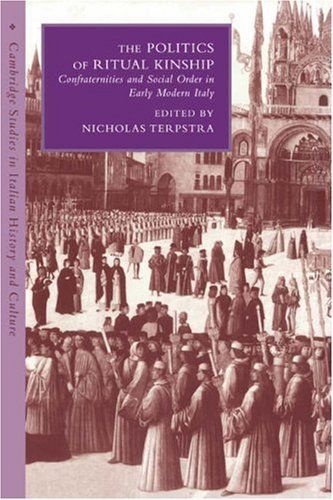
The Politics of Ritual Kinship Confraternities and Social Order in Early Modern Italy
Confraternities were the most common form of organized religious life in medieval and early modern Europe. They were at once the lay face of the church, the spiritual heart of civic government, and the social kin who claimed the allegiance of peers and the obedience of subordinates. In this 1999 collection, fifteen scholars examine the development of confraternities in Italy, where they emerged first and had the greatest impact. Individual essays explore a common set of themes across Italy from the twelfth to the eighteenth centuries: the ubiquity of confraternities, social construction, and devotional ethos; their ritual culture and civic religion; their antagonistic and collaborative relations with both civic and ecclesiastical authorities; and their role in social welfare and social control of marginal groups. The authors demonstrate how the ritual kinship expressed in confraternities emerged in the Middle Ages and became a powerful force in 'civilizing' early modern Italian society.